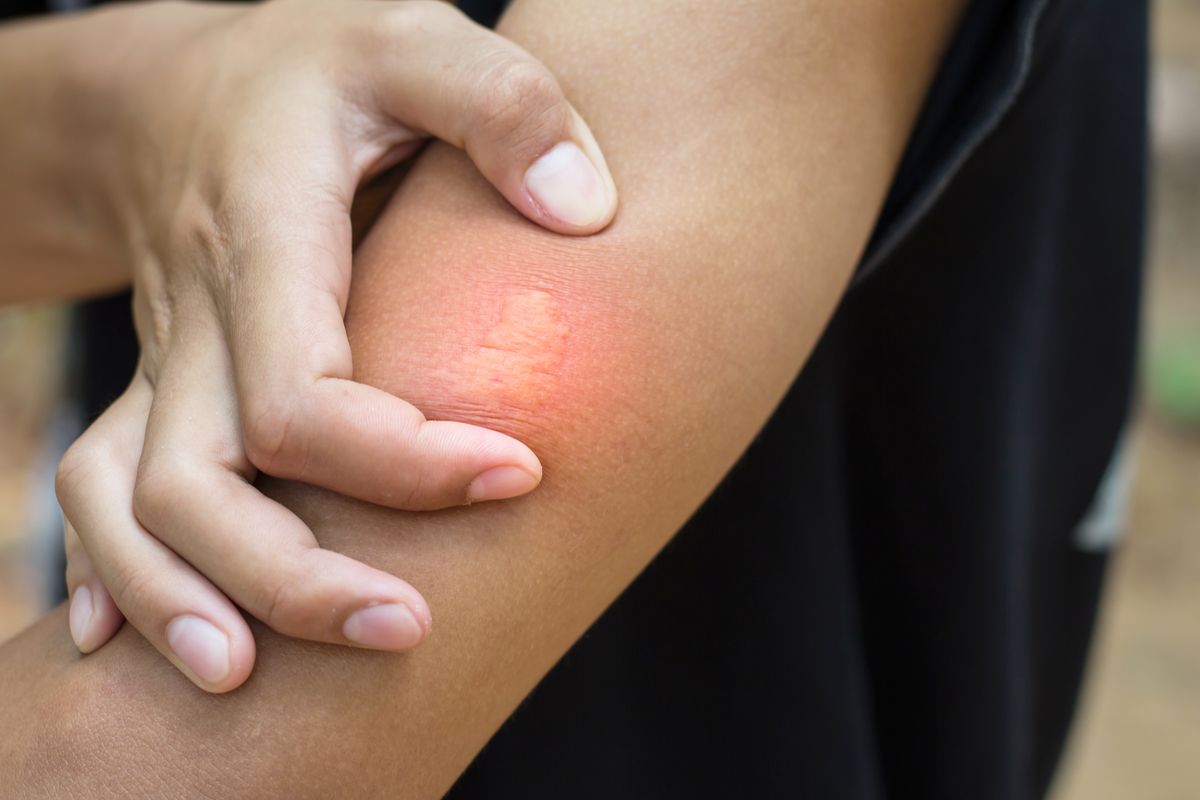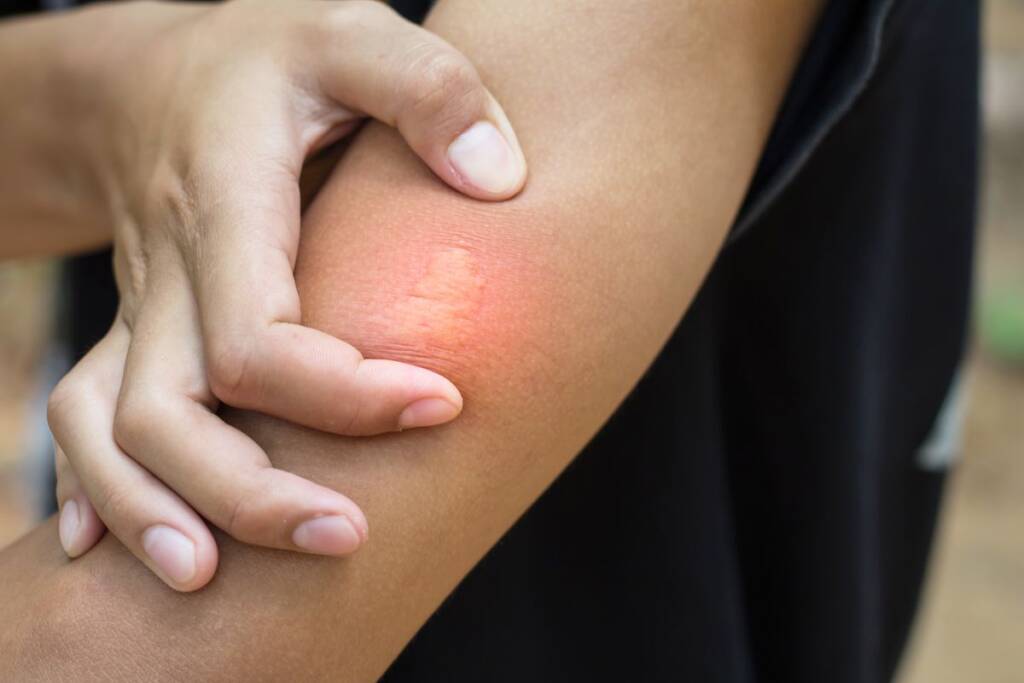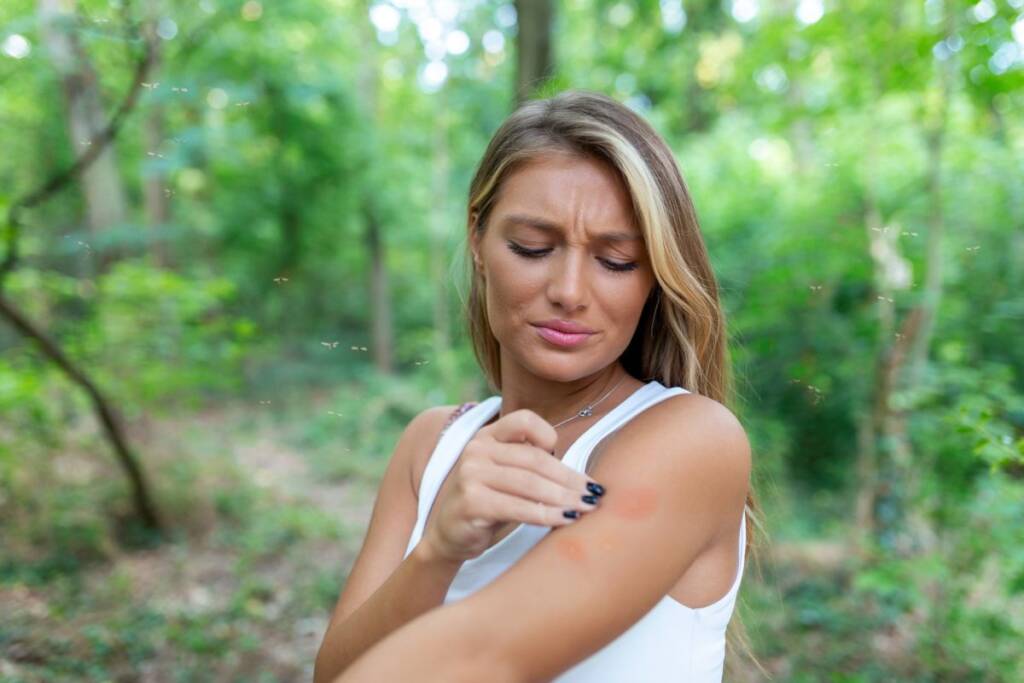Health
Wasp sting: symptoms, risks and remedies

A wasp sting is a traumatic and, in some cases, dangerous event. Let's find out how to handle the situation.
Being stung by a wasp is never pleasant. In addition to the common annoyance , in fact, you can experience even serious allergic reactions. For this reason it is very important to recognize the problem immediately, understand its extent and establish how to move on.
Here, then, is all that is important to know about it, in order to behave in the most correct way after a wasp sting.
Wasp sting: the symptoms to recognize
Let's start by saying that unlike what happens with the bee sting , the wasp doesn't leave the sting and doesn't die. Which is why it can sting multiple times. When you realize you have received a sting it is therefore very important to get away as soon as possible in order to avoid other ambushes . Once sheltered, it is necessary to check the area where you have been stung to understand the extent of the problem.

In case of mild symptoms it is in fact possible to act on their own. While if other factors such as an allergic reaction take over, it is essential to go to the emergency room immediately.
Speaking of the symptoms , generally the most common are immediate pain, redness and swelling of the surrounding area and burning combined with itching. Wasp sting swelling can last more than 24 hours.
In some cases, however, as already mentioned, a wider reaction may occur. This may include:
– Rash with lumps
– Swelling of the lips and eyelids
– Palpitations
– Feeling of exhaustion
– Nausea
– Difficulty swallowing
– Fever
When the swelling makes breathing difficult or you add a cough, a sense of suffocation, chest pain or lack of air, it is important to go to the emergency room immediately. In some cases, in fact, the wasp sting can lead to anaphylactic shock which, if not caught in time, can prove fatal.
There is also another less known reaction which is poison intoxication. In this case the most common symptoms are nausea, vomiting, dizziness, fever and convulsions. As with anaphylactic shock , it is also essential in this case to consult your doctor because intoxication not taken in time can lead to deficits such as heart problems , kidney failure or damage to muscle tissue.
What to do after a wasp sting and what are the first remedies
When you get stung by a wasp, the very first thing to do is to quickly check your condition. If you are generally well and in the absence of symptoms you can think of taking care of it yourself.
First of all it will be necessary to wash the area well, obviously without rubbing the irritated part.
For pain, you can use ice packs or post puncture sticks that you can buy at the pharmacy. Then there are natural remedies such as Aloe Vera or calendula which can give relief from both burning and pain.
Furthermore, if the doctor deems it necessary, you can opt for an antihistamine, even in cream, to be applied to the sting area. To this you can add an over-the-counter painkiller to be taken when necessary. As already mentioned, in case of symptoms it is very important to call 118 or be accompanied to the emergency room. In this case the doctor will intervene according to the need, choosing between cortisone, oxygen or adrenaline.
In the event of a full-blown allergy, emergency medicines are likely to be prescribed to always carry with you in case of stings. Among them, the most common is the self-injecting adrenaline pen.

How to act to prevent a wasp sting
Wasps tend to swarm around and even stay in places frequented by humans. For this reason, running into them is easier than you think. Fortunately, there are some small precautions that can be taken. If you go to open areas and, above all, to the green, it is advisable not to go around barefoot and to avoid walking among flowers, plants and everything that precludes the possible sight of wasps.
In case of the sight of one or more wasps it is always good to get away. It can be useful, also avoid perfumes or cosmetics that attract them. And in case of a picnic , it is always a good idea to check the area before sitting down and cover the food to avoid attracting wasps. Finally, if you live in green areas or are allergic to it, it is always advisable to use mosquito nets in order to prevent them from entering.
It should be remembered that prevention, as well as the speed of action in the event of a sting, have always represented the best lifesaver there is.
Riproduzione riservata © - WT











